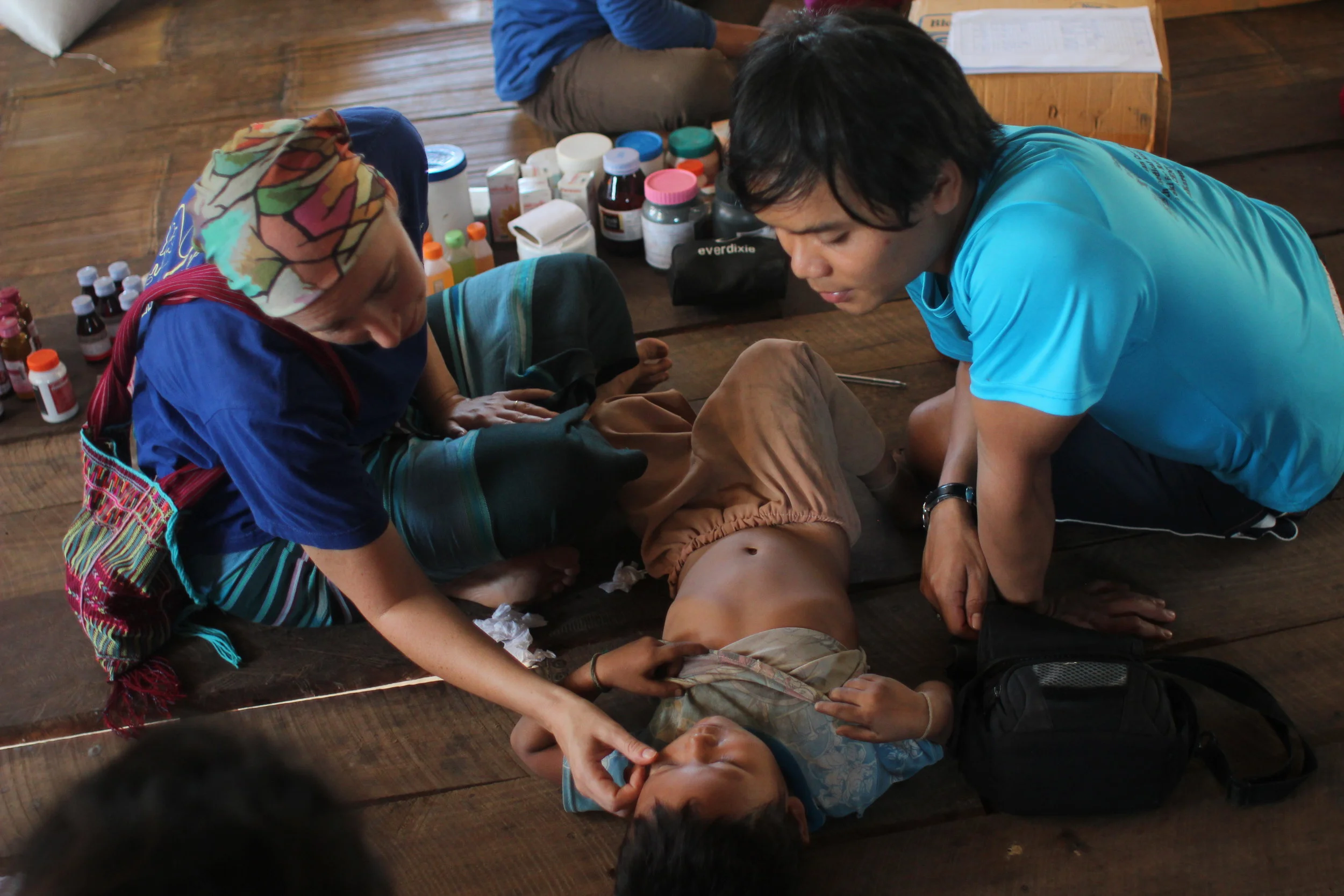Recently some Oak Life medical professionals extended our branches into the world by serving at a refugee clinic on the border of Myanmar and Thailand. Below are some reflections from one of the the team members, Kaitlyn Gentilin:
I wish I could say this isn't true, but working as an RN I know that hospitals are more like the movies than we like to admit. At least, they are in attitude. We doctors, nurses, and the like want to believe that we are heroes saving lives, having emotionally intense conversations with our patients that change their lives and ours, and that if we work really hard we can have all the answers to someone's problems. In essence, we want to be Jesus for people. Of course, when reality hits, as it does every day, it’s quite a blow to our self-esteem.
When the opportunity came up to educate Karen medics performing jungle medicine at a clinic in a remote village on the border of Thailand and Myanmar, it really fit the whole “saving lives” sexiness of being a health care provider. Imagine going 7 hours up and down a road passing refugee camps to arrive at a war torn, mostly deforested area, so remote there is no running water, no internet, and a 20 minute walk to the nearest refrigerated drink. Oh, and did I mention it’s over 90 degrees every day?
So, Alie, Darrell, and myself, three transported RNs, started our teaching. Now, let me just explain “jungle medicine”. Take anything you think you know about how medicine is done and throw it out the window. Now imagine the first "doctor" ever. He probably learned through trial and error, his scientific reasoning was based solely on his experience of the physical world, and it probably took a long time to diagnose and decide what was wrong with a patient—not to mention what to do to fix it. Now imagine being that doctor. And also being a social worker, nurse, case manager, public health provider, lab technician, pharmacist, and counselor. That's what these medics face every day. Their ingenuity and problem solving ability are off the charts.
Some of these medics usually move to a refugee camp to go to school, leaving behind their homes and families. The cease fire there is only 4 years old, so although they may not talk about it, war has touched each and every medic’s life. While most have never taken a biology class, they use their limited resources and the knowledge they do have intelligently and wisely.
A certain medic I met on our trip left a huge impression on me. K is my age, with kind, youthful brown eyes and curly black hair shaved on either side. After each of the small lessons our team taught, he would come to me asking for more. "I want to learn more about how the body works--anatomy and physiology. I want to learn the parts of a cell, the anatomy of skin, and musculoskeletal system", he said. His desire for knowledge appeared to be insatiable. Marci, our fearless leader, also the RN who works for Partners for Relief and Development supporting the medics and the clinics, spoke of K as a leader in the clinic. He was under more pressure than any other medic because, if he didn't know the answer, there was no one else to turn to. "They all look up to him, and that's a weight on his shoulders", she said.
At the end of one of our sessions, K said, "I need to know more about everything because I make mistakes a lot and I feel guilty about those mistakes, and I'm responsible for them. I need to learn more so I don't make mistakes." I could hear the frustration and urgency of his concern.
I was left speechless. Here was a person who had a life completely different from my own. And here K is, having the same fears and concerns that I struggle with.
I had no answer for him, because I have no answer for myself. I remember coming up with something about turning mistakes into learning opportunities that even now I think sounds contrived. But, I did tell him that I feel the same way. I also told him what he does is no small feat: he is doing the work of 7 people in the United States, and he does an amazing and inspiring job.
There are no easy answers for the struggles we face, but we all struggle, we all want to do better, and we all want to help. As human beings, we can’t save people—that’s Jesus’ job. The ironic thing is, as soon as I saw it from that perspective, I could see how K and I DO help save lives every day! I keep going back to the verses in Ecclesiastes that says all our labor is meaningless, and I find it’s actually hopeful. Jesus saves us from ourselves, and after that, we can only do what we can do. When I acknowledge Jesus and what his role is, through him I get to participate in his plan by whatever action I choose. I get to relate to K, and watch how Jesus works through him, whether he sees it or not. That’s my “meaningless” work—yet I feel extremely blessed and joyful to have experienced it.




